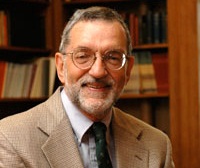
On October 1, Georgia successfully concluded its first constitutional transfer of power through internationally monitored free and fair elections. President Saakashvili graciously accepted his governing party’s defeat and has worked constructively with Bidzina Ivanishvili, leader of the victorious Georgia Dream Party for a smooth transfer of power. There will be a sharing of power with Saakashvili staying in office until next year and Ivanishvili assuming the position of prime minister. Given the zero-sum nature of past Georgian politics, this is a remarkable achievement for all Georgians and Georgia’s political leadership. Yet, many serious challenges for institutionalizing democracy remain underscoring that democracy building involves more than elections.
Since President Saakashvili’s election in 2004, Georgia has made notable progress. The bureaucracy is streamlined, governance is much stronger and market reforms have advanced. Petty corruption was attacked principally by firing en masse the corrupt traffic police. A price, however was paid as Georgia was at risk of becoming a one-party state with UNM control of the executive branch, parliament, and judiciary. Complaints were rife that modernization was being directed by a small, increasingly isolated group of leaders and that democratic processes were secondary. Still, the general assumption was that the UNM would sweep the elections.
The history is now well known, Mr. Ivanishvili entered Georgian politics about one year ago, fashioned an opposition coalition of parties and brought his considerable financial resources to challenge the President. The authorities reacted with a series of repressive measures but Ivanishvili proved to be a credible candidate and there was extensive Western pressure for free and fair elections. Georgia enacted a law offering the opposition greater media access prior to the elections and the election itself was broadly praised by international observers.
The reasons for the UNM defeat are worth reviewing as they provide the basis for the challenges now facing Georgian Dream as it takes office.
First, despite reforms Georgia remains poor and its agriculture underdeveloped. The benefits of the market based reforms under Saakashvili were not equally felt leaving many dissatisfied with their economic status.
Second, it seems Georgians may have tired of political dominance by a single political entity since 2004, one that was criticized for increasingly undemocratic methods and being oblivious to the concerns of the average citizen.
Three, the sordid videos shown on election eve of sexual attacks on and beatings of prisoners stunned Georgians. These abuses had been known for some time but the graphic public evidence severely undermined the moral authority of the government and put them on the defensive.
Four, efforts to brand Ivanishvili as a “Russian puppet” did not stick. Many Georgians apparently seek lessened tensions with the neighbor to the north even as they recognize the fundamental and unresolved problems in the relationship. Some may also have registered displeasure with the damage done to Georgia’s international reputation and territorial integrity resulting from the 2008 war with Russia. Ivanishvili pledged to continue Georgia’s Western-oriented security and economic vector but also stated his intent to improve relations with Russia.
The election is an important, if still tentative step in institutionalizing Georgian democracy. In a number of former Soviet states, including Russia, warring democratic factions have been unable to combine efforts and win broader mandates. Not only will the Georgian Dream coalition, which includes several differing political viewpoints, need to stick together but its treatment of UNM in opposition will also be critical. Georgia badly needs a credible, viable opposition in parliament to strengthen democracy and challenge government policies. It is imperative for Georgia Dream that there not be a turn to “settling old scores” and demonizing the new opposition.
Georgia’s economic difficulties and uneven income distribution must also be faced head on. The new economic team must continue to open up the economy to trade and investment, use Georgia’s strategic location to become a commercial center for the region and take serious steps to improve Georgia’s underperforming agriculture sector.
The steps taken to provide fair access to the media prior to the election must be institutionalized and the constructive role of NGO’s as intermediaries between government and the populace strengthened. Likewise, reform of the judicial system must be undertaken again and this time fully implemented so that the prison population can be better treated and independent and fair judicial procedures assured. The rule of law is one of the cardinal principles of a democracy.
It is welcome news that Mr. Ivanishvili’s first trip abroad will be to the United States. Georgia’s democratic credentials have been strongly enhanced by the election and the time is now ripe for Georgia to seek enhanced cooperation with the EU and the United States. Relations with Russia also need to be improved on an equitable basis. A top priority is to recover trade and economic ties with the first step reopening the Russian market for Georgian wine and mineral water.
Political developments in Ukraine, Russia, Belarus and others demonstrate the dangers of backsliding in democracy in the former Soviet Union. This is Georgia’s main challenge today—to turn the successful election into concrete steps to institutionalize democracy. Support from the West will remain crucial. This should include encouraging Georgia to make the transition from personality-driven politics to broad-based political engagement bolstered by vigorous grass roots participation, implement judicial and prison reforms and move forward on guarantees of the free press and media. Given Russia’s continued occupation of Georgian territory, the West must also continue its strong support for Georgia.
This election can help make Georgia a beacon in a part of the world that knows little democracy. Mr. Ivanishvili has made a strong start by choosing very qualified and skilled individuals to take the principal posts in government and parliament and by being open to advice and counsel. Georgia must now work to sustain its achievements and turn them into lasting democratic progress.

